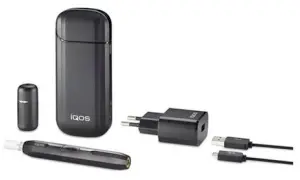 Philip Morris International (PMI) will no longer be conspicuous in the tobacco alternatives market by its absence.
Philip Morris International (PMI) will no longer be conspicuous in the tobacco alternatives market by its absence.
Not only has the company, spun off from Altria in 2008 and still closely linked to the Big Tobacco leader through product licensing deals, just acquired the last of the major UK e-cigarette independents, Nicocigs.
It is also now ready to begin test marketing its long-awaited “heat-not-burn” product, which will be launched in Japanese and Italian cities in the last quarter of this year before availability is expanded during 2015.
Known internally as Platform 1, the product consists of a heating device called the iQOS (pronounced “eye-coze”) into which tobacco sticks, branded as Marlboro HeatSticks, are inserted. The tobacco is heated to reach up to 660 degrees F (350 degrees C) and a nicotine vapour is released for inhalation.
The heat-not-burn technology thus represents a middle ground between e-cigarettes and conventional cigarettes – using actual tobacco rather than a nicotine-containing liquid, but forcing out the vapour through heating instead of combustion.
A similar technology was originally introduced by predecessor company Philip Morris under the Accord brand in the 1990s, but failed to set the market alight, although Reynolds American still sells its Accord equivalent on a small scale.
PMI, which has committed $2bn to developing what it calls its “reduced-risk products”, is building a factory in Bologna which it says will be able to produce up to 30bn HeatSticks by 2016.
The new products will be available through PMI’s existing cigarette sales channels such as convenience stores and other retailers.
Meanwhile, in 2016 PMI also “anticipates launching a proprietary e-cigarette that it believes will provide adult smoker satisfaction and a nicotine delivery profile comparable to combustible cigarettes”, said CEO André Calantzopoulos. “Within the next three to four years, the company anticipates that its reduced-risk products will become accretive to its bottom line.”
What This Means: PMI and its American cousin Altria have lagged behind counterparts Lorillard and Reynolds American in going to market with e-cigarettes, and been further threatened by the possibility of a merger between that pair.
But the announcement of Platform 1 finally coming to consumers, and an e-cigarette in a couple of years, demonstrates both companies’ seriousness about the tobacco alternatives category.
Moreover, in Marlboro they have a hugely powerful cigarette brand which they can leverage for the introduction of heat-not-burn: as a tobacco product it does not fall foul of rules prohibiting cross-branding between tobacco and non-tobacco in the way that an e-cigarette would.
– Barnaby Page ECigIntelligence staff







